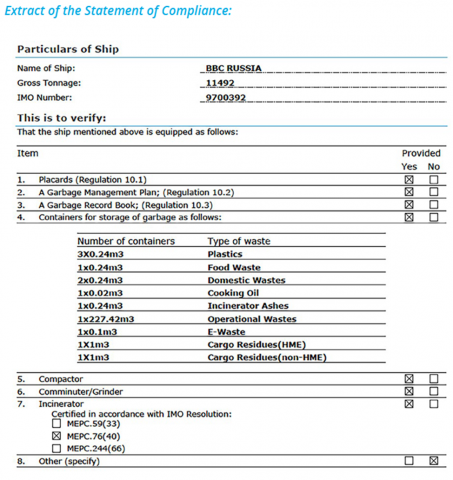Section I – Classification Certificate Section
II – Statutory Certificates
Section III – Statutory Marpol Certificates
Section IV – Cargo and gear, lifting appliances
Section V – Permanent Certificates, DoC, LoC, SoC Section
VI – Special and Extraordinary
Section III – Statutory Marpol Certificates
The International Convention for the Prevention of Pollution from Ships, or MARPOL for short, is the main inter-national convention covering preven-tion of pollution of the marine envi-ronment by ships from operational or accidental causes.
This international convention was adopted by the IMO in 1973, and later updated in 1978 after several severe tanker accidents. The combined in-strument (MARPOL 73/78) entered into force on 2 October 1983.
The map shows the location of the world’s 10 largest oil spills and other
incidents.
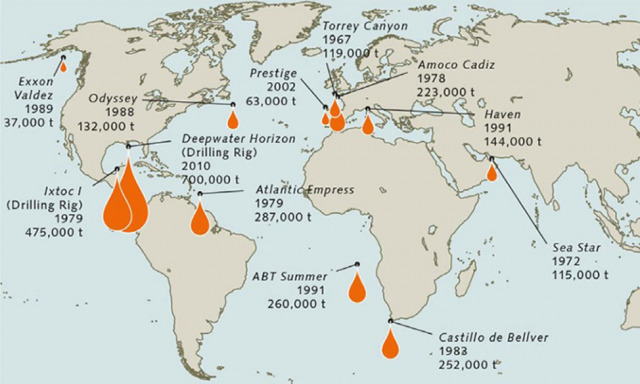
MARPOL has been updated by amend-ments throughout the years, and cur-rently includes six technical annexes: These Annexes cover pollution of the sea by oil, by noxious liquid substan-ces in bulk, by harmful substances in packaged form, by sewage from ships and by garbage from ships. Annex IV was adopted by a further Protocol in 1997 and covers air pollution from ships.
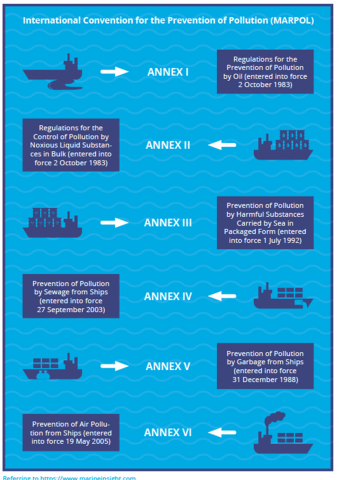
In the following the main Annexes including the respective certificates relevant for the Briese Fleet will be explained more detailed

The IOPP certificate is issued to each new ship after an appointed surveyor’s inspection and found to be in compli-ance with the MARPOL convention.
The certificate shows details of all oily water separation and filtering equip-ment and also the associated moni-toring equipment required under the convention.
Examples of the single aspects of the IOPP as per right:
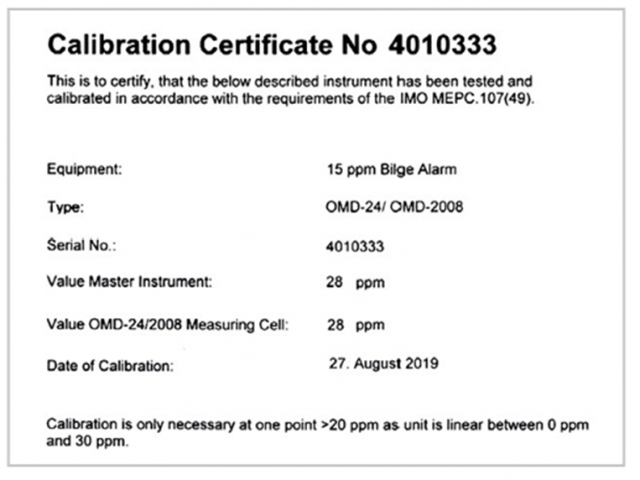
Example of a compliance failure du-ring an annual inspection as per right.
Conditions / observations issued by class have to be eliminated.
Bilge water separator to be repaired for the failure: Desiccator worn out.
Unil bilge water separated bilge to be delivered to shore.
Bilge water system (Pending) During test of bilge water separator a failure emerged. Desiccator worn out.
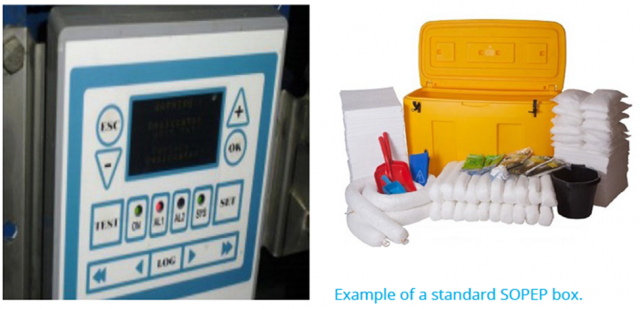
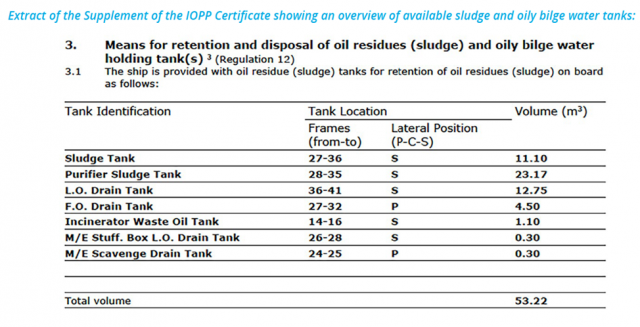

In 1997, a new annex was added to the International Convention for the Prevention of Pollution from Ships (MARPOL). The regulations for the Prevention of Air Pollution from Ships (Annex VI) seek to minimize airborne emissions from ships (SOx, NOx, ODS, VOC shipboard incineration) and their contribution to local and global air pollution and environmen-tal problems.
Since 1st of January 2020 a new reg-ulation came into force: For ships operating outside designated Emission Control Areas, IMO has set a limit for sulphur in fuel oil used on board ships of 0.50% m/m (mass by mass). This will significantly reduce the amount of sul-phur oxide emanating from ships and should have major health and envi-ronmental benefits for the world, par-ticularly for populations living close to ports and coasts.
International sewage pollution prevention certificate – ANNEX IV
The discharge of raw sewage into the sea can create a health hazard.
Sewage can also lead to oxygen de-pletion and can be an obvious visual pollution in coastal areas - a major problem for countries with tour-ist industries. The main sources of human-produced sewage are land-based - such as municipal sewers or treatment plants. However, the dis-charge of sewage into the sea from ships also contributes to marine pollution.
Annex IV contains a set of regula-tions regarding the discharge of sewage into the sea from ships, in-cluding regulations regarding the ships’ equipment and systems for the control of sewage discharge, the provision of port reception facilities for sewage, and requirements for survey and certification.
It is generally considered that on the high seas, the oceans are capa-ble of assimilating and dealing with raw sewage through natural bacte-rial action. Therefore, the regula-tions in Annex IV of MARPOL pro-hibit the discharge of sewage into the sea within a specified distance from the nearest land, unless oth-erwise provided.
Sewage which has not been com-minute or disinfected may be dis-charged at a distance of more than 12 nautical miles from the nearest land when the ship is en route and pro-ceeding at not less than 4 knots, and the rate of discharge of untreated sewage shall be approved by the Ad-ministration (see resolution MEPC. 157(55)).
The Certificate is not subject to an annual or periodical survey. The validity is for 5 years.
Statement of compliance with respect to MARPOL 73/78 ANNEX V (prevention of pollution by garbage)
Garbage from ships can be just as deadly to marine life as oil or chemi-cals. The greatest danger comes from plastic, which can float for years. Fish and marine mammals can in some cases mistake plastics for food and they can also become trapped in plas-tic ropes, nets, bags and other items - even such innocuous items as the plas-tic rings used to hold cans of beer and drinks together.
It is clear that a good deal of the gar-bage washed up on beaches comes from people on shore - holiday-makers who leave their rubbish on the beach, fishermen who simply throw unwanted refuse over the side - or from towns and cities that dump rubbish into rivers or the sea. But in some areas most of the rubbish found comes from passing ships which find it convenient to throw rubbish overboard rather than dispose it of in ports.
For a long while, many people believed that the oceans could absorb anything that was thrown into them, but this at-titude has changed along with greater awareness of the environment. Many items can be degraded by the seas - but this process can take months or years.
Persuading people not to use the oceans as a rubbish tip is a matter of education - the old idea that the sea can cope with anything still prevails to some extent but it also involves much more vigorous enforcement of regula-tions such as MARPOL Annex V.
The Statement of Compliance (SoC)
with respect to MARPOL 73/78 Annex V (Prevention of Pollution by Garbage) is not a required Certificate by Class or Flag. It is issued at the request of the owner’s representative for the infor-mation of interested parties that the ship is in compliance with the Annex V.
In earlier times for a lot of our vessels the SoC did not exist. Only vessels with
Incinerator have had the Statement of Compliance. Nowadays every garbage bin is listed on the Statement of Compli-ance and it is checked by surveyors, port authorities and other country locals.
The SoC is not subject to an annual or periodical survey. The validity is for 5 years.
